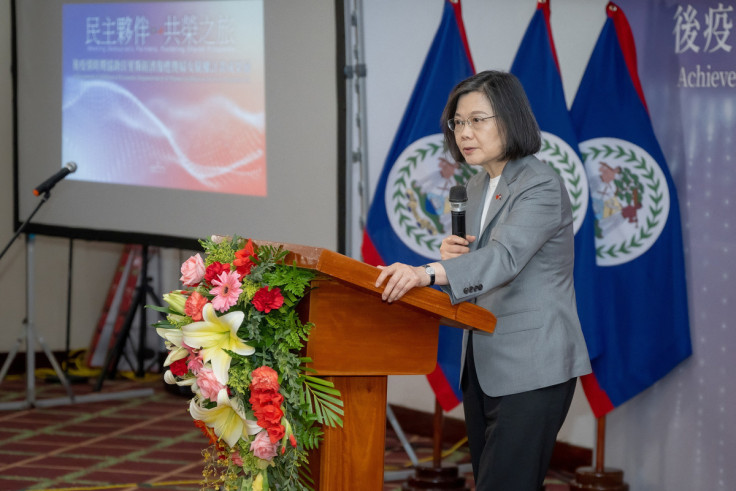Taiwan President Set For Historic Meeting With US House Speaker In California

Taiwanese President Tsai Ing-wen is set to meet U.S. House Speaker Kevin McCarthy on Wednesday in the first such meeting on U.S. soil, a plan that has drawn threats of retaliation from China, which claims self-ruled Taiwan as its own.
McCarthy, a Republican who through his House position is number three in the U.S. leadership hierarchy, is due to host Tsai in the morning at the Ronald Reagan Presidential Library in Simi Valley California, near Los Angeles.
It will be the highest-level meeting with a Taiwanese president on U.S. soil since Washington switched diplomatic recognition from Taipei to Beijing in 1979.
It is sure to draw a strong reaction from Beijing, which considers Taiwan part of its territory and has vowed to bring it under its control, by force if necessary.
McCarthy's Democratic predecessor Nancy Pelosi visited Taipei in August, provoking a furious response from China, which conducted large-scale military exercises, firing missiles over Taiwan and cutting military contacts with Washington.
China has repeatedly warned against a meeting between McCarthy and Tsai, who is on her first U.S. stopover since 2019, although some analysts expect its reaction to be more moderate than that to Pelosi's Taipei visit.
A meeting in California is seen as a potentially less provocative alternative to McCarthy visiting Taiwan, something he has said he hopes to do.
Tsai transited through New York last week en route to Central America to visit two of Taiwan few remaining diplomatic partners, Guatemala and Belize.
Washington called on China not to overreact, portraying Tsai's stopovers as routine and a normal part of its unofficial relationship with Taiwan.
However, the United States, which is bound by law to provide Taiwan with the means to defend itself, has stepped up interactions with Taipei in recent years as Beijing's pressure on the island has increased.
Xu Xueyuan, charge d'affaires at China's Washington embassy, said last week that McCarthy meeting Tsai "could lead to another serious confrontation in the China-U.S. relationship." On Tuesday China's foreign ministry said it would "closely monitor" the meeting and "resolutely defend" Chinese sovereignty.
White House spokesperson Karine Jean-Pierre told a regular news briefing on Tuesday Tsai's transit was "private" and "unofficial."
"President Tsai herself has made this transit about six times before and again there should be no reason to for China to overreact" she said, adding there had been no change to the U.S. "One-China" policy that recognizes Beijing diplomatically not Taipei.
Since Pelosi's visit, U.S.-China relations have deteriorated to what some say is their worst level since 1979.
February saw the dramatic shooting down of a Chinese spy balloon that drifted over U.S. territory and fears have only grown that Beijing may eventually be emboldened by Russia's invasion of Ukraine to move militarily against Taiwan.
© Copyright Thomson Reuters 2024. All rights reserved.











